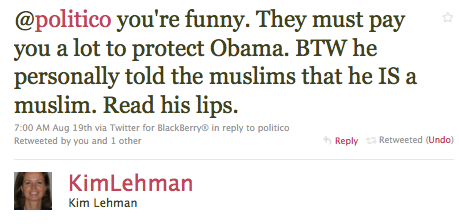One of the simplest ways to boost electricity production from renewable sources, rather than fossil fuels, would be to adopt a federal renewable electricity standard (RES). About 30 states, including Iowa, already have some form of RES, requiring utilities to produce a certain percentage of electricity from renewable sources. The demise of broad climate change legislation in the U.S. Senate in favor of a pathetically watered-down energy bill appeared to end hopes for the RES in this Congress. However, three Republicans and six Democrats today announced a new bill that, in their view, could gain support from enough senators to break a filibuster:
The RES, from lead co-sponsors Jeff Bingaman (D-NM) and Sam Brownback (R-Kan.), hews closely to the standard passed in the Energy and Natural Resources Committee last year. Beginning in 2012, utilities will be required to draw 3 percent of their electricity from renewable sources. The percentage scales up to 15 percent by 2021, where it would remain through 2039.
Wind, solar, ocean, geothermal, biomass, new hydropower, and gas drawn from landfills would all qualify as renewable under the standard. States will also be allowed to meet a little more than a quarter of the requirement by improving efficiency at power plants. The definition is expanded somewhat from the version included in a larger energy package that Bingaman’s committee approved in June 2009.
The Bingaman/Brownback proposal is a weaker RES than what the U.S. needs to reduce fossil fuel pollution, but passing it would be better than doing nothing. Kate Sheppard reports that the new bill has six Democratic supporters and three Republicans: Brownback, John Ensign of Nevada, and Susan Collins of Maine.
Senator Chuck Grassley has supported RES legislation in the past, but the Politico’s Josh Voorhees reported today,
Iowa Republican Chuck Grassley, who could be in play, also has yet to sign on to the effort. He told reporters last week that while he is a long-time supporter of an RES, he’s unwilling to join Democrats in voting for one unless a healthy number of his GOP colleagues do as well. “I’m not going to be a part of one or two Republicans, get 60 votes, so they can have a partisan victory,” he said in the Capitol.
For the moment let’s forget about the environmental benefits of generating more renewable electricity, and the health benefits of reducing our reliance on coal combustion. Iowa’s economy could benefit tremendously from federal law that requires utilities to invest more in renewables. Not only is Iowa the number two state for wind energy production, we have a growing number of people manufacturing equipment for wind turbines. Iowa also has good potential for solar power.
Grassley would turn his back on a bill that’s good for his constituents and the country as a whole, because he doesn’t want to be among a small group handing Senate Democrats “a partisan victory.”
Small-minded stuff for the senator whose campaign slogan is “Grassley works…for us.”
Iowans can contact Grassley’s offices in Washington (phone 202-224-3744, fax 202-224-6020) or in Des Moines (phone 515-288-1145, fax 515-288-5097) to urge him to co-sponsor the Bingaman/Brownback bill.
Democratic Senate candidate Roxanne Conlin supports a federal RES and other policies to increase renewable energy production.
UPDATE: Grassley confirmed on September 23 that he is co-sponsoring this bill. Good for him.
Continue Reading...
